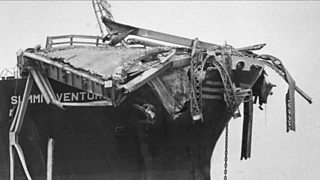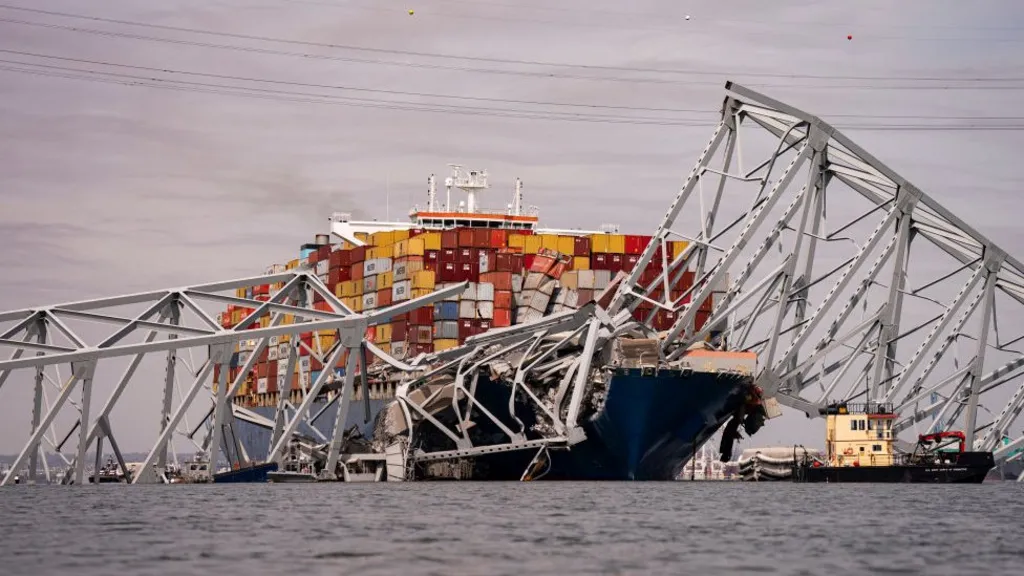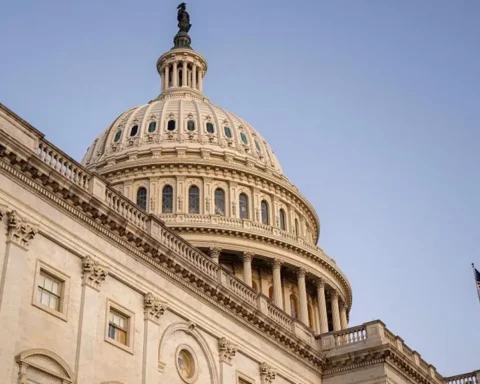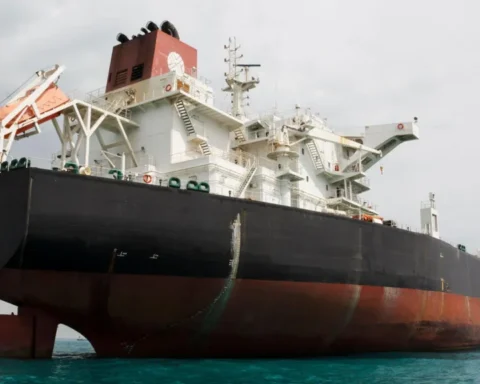The bodies of two people have been recovered from a red pickup truck, which was under water where the Baltimore bridge collapsed.
Eight workers were on the bridge when it was struck by a ship, plunging them into the waters below.
Two were rescued on the day, but the search continues for the other four. All are presumed dead.
Salvage crews are working to address hazardous materials and accident investigators are on the scene.
Four of the six victims of the bridge collapse have been named so far.
Maryland police said the bodies of Alejandro Hernandez Fuentes, 35, and Dorlian Ronial Castillo Cabrera, 26, were recovered from inside the truck. Mr Fuentes is originally from Mexico and Mr Cabrera is from Guatemala.
Divers are no longer able to navigate the waters safely because of concrete and debris found in the river, police said.
They are now using sonar scans and believe that vehicles that may contain other bodies are “encased in superstructure and concrete” that came down from the bridge, an official said.
Two other missing men were named as Miguel Luna, originally from El Salvador, and Maynor Suazo Sandoval, a Honduran citizen.
Mexico’s Ministry of Foreign Affairs said earlier that two of its citizens were presumed dead – one of whom is now identified as Mr Fuentes – while another was rescued from the water.
One person who was in hospital after being pulled out of the water was released, officials said late Wednesday.
First responders spent hours on Tuesday searching the waters of the Patapsco River for the six ,em, who were working on potholes on the bridge at about 01:30 (05:30 GMT) when it was hit by the ship. The US Coast Guard called off the search around sunset, saying cold water temperatures and hours gone by meant the workers were presumed dead.

0:57Watch: A look at past US bridge collapses after a vessel collision
Officials have pledged to find their bodies for their relatives.
“We’ve got to give these families closure,” Wes Moore, governor of Maryland, told reporters on Wednesday, adding that air, land and water resources had been devoted to the search of the victims.
“My promise to them is this: I will devote every single resource to make sure that you receive closure,” he said.
But the operation has been challenging, Coast Guard Vice-Adm Peter Gautier said on Wednesday, due to cold temperatures and debris in the water.
The cargo vessel itself is stable but has more than 1.5 million gallons of fuel oil and lubrication oil on board, Mr Gautier said.
Roughly 4,700 cargo containers were also on board, including 56 that contained hazardous materials.
“The Coast Guard has moved aggressively to board the vessel and we have teams on board,” Mr Gautier said.
He said there was “no threat to the public from the hazardous materials on board”.
Jennifer Homendy, chair of the National Transportation Safety Board, said some containers with hazardous materials had been “breached”.
A total of 764 tonnes of mostly corrosive and flammable materials were identified, she said.
There was some sheen on the waterway around the collapse, Ms Homendy added.
The US Navy plans to use barges with heavy lift cranes – some can carry as much as 1,000 tonnes – to remove parts of the bridge that fell in the water.
1:21Watch: Former FBI diver explains risks of Baltimore recovery
The Dali was headed toward Sri Lanka when it lost power all of a sudden and issued a distress call before crashing into the Baltimore bridge.
A data recorder recovered from the ship shows that power failed for just over a minute, but this was enough to make the collision unavoidable.
In an audio recording, the pilot can be heard giving steering commands and rudder orders as the ship approaches the bridge.
Officials say the bridge collapse at a key port could pose a risk to global supply chains and the US economy.
Mr Moore said that 8,000 jobs could be affected by the bridge collapse and called the incident a “global crisis”.
“The national economy and global economy depends on the port,” he said, noting that $80bn (£63.4bn) of cargo moved through there last year.
Paul Wiedefeld, secretary of the Maryland Department of Transportation, stressed that replacing the bridge would not be a fast process, but he promised at Wednesday’s news conference that officials were working to “come up with a design for the replacement of that bridge as quickly as possible to get the port back up and the community back up and running”.
Experts say Key Bridge’s collapse could lead to losses of up to $15m (£11.8m) a day until the shipping lane is reopened.
US Senator Ben Cardin of Maryland said he was confident “thanks to the Biden administration” that the state would get the necessary resources to recover and begin work on a replacement bridge.
“Our top priority is to get the shipping lane open because of the impact it has on our country and the global supply chain,” he said.
Investigators are also hoping to determine whether dirty fuel played a role in the deadly crash. Maritime experts say contaminated fuel can cause a ship to black out as it creates problems with a vessel’s main power generators.






